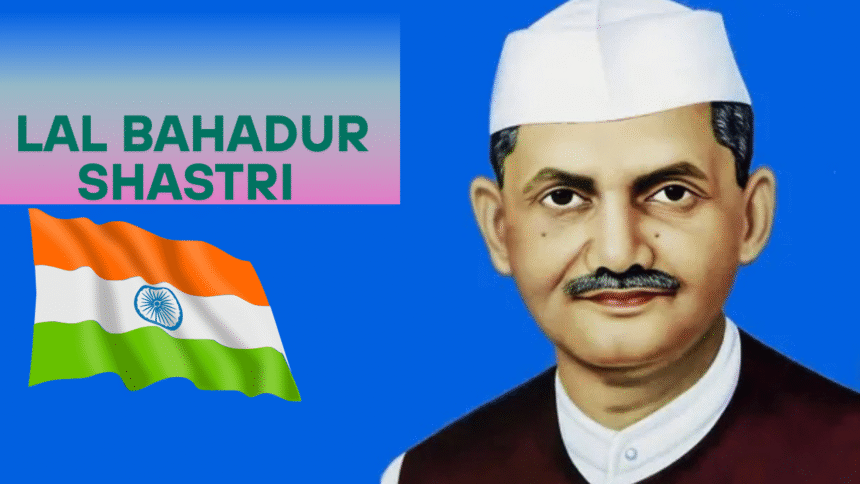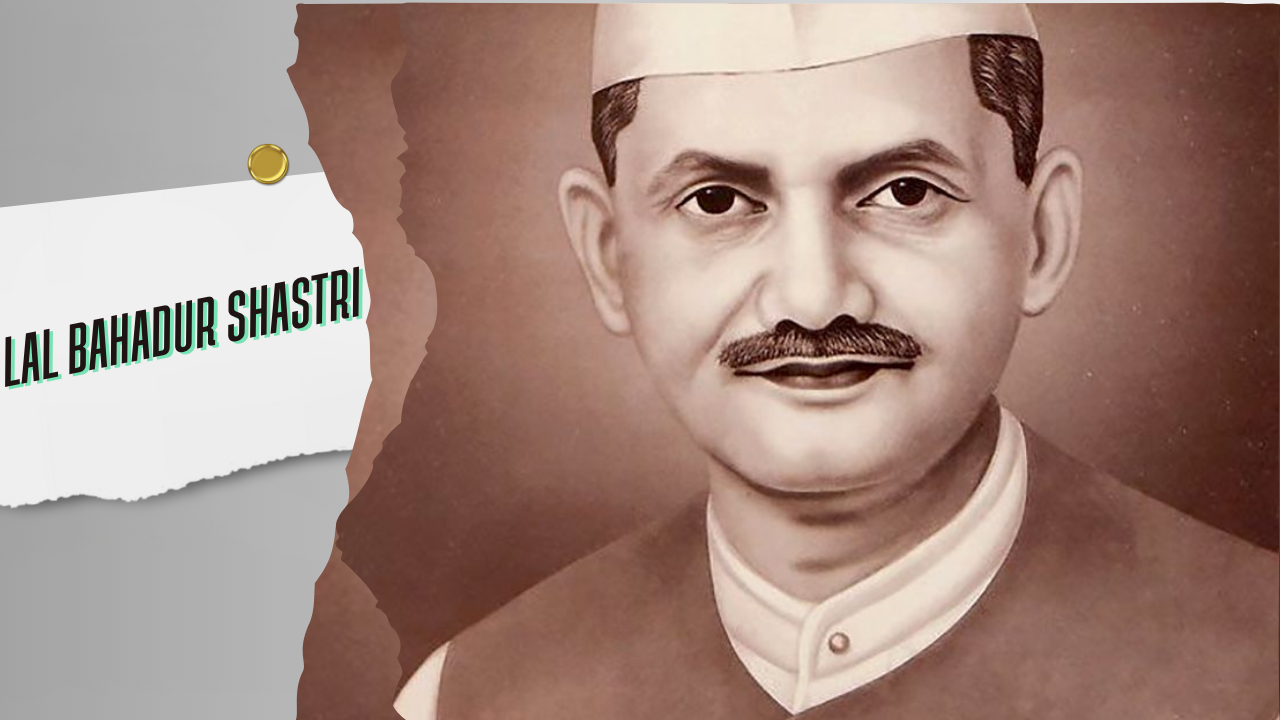Ever listened of a pioneer who didn’t yell to be listened, however his words reverberated through a country? That’s Journey of Lal Bahadur Shastri for you. Unassuming in nature but forceful in activity, Shastri was the kind of pioneer who didn’t require fantastic discourses or control plays to gain regard. He strolled the talk—literally, frequently seen strolling miles to go to school as a boy. From his unassuming roots in Mughalsarai to getting to be India’s moment Prime Serve, his life is not fair inspirational—it’s out and out extraordinary.
Early Life: Born with Nothing, Built Everything
Shastri was born on October 2, 1904, in a humble family in Mughalsarai, Uttar Pradesh. No silver spoon. No political back up parents. Fair a basic boy with huge dreams. His father, a school educator and receptionist, passed absent when Shastri was fair a little child. Life wasn’t fair tough—it was bone-hard brutal.
But here’s the kicker: indeed in those early a long time, Shastri appeared signs of being a calm revolt. He addressed injustice, strolled miles unshod to school, and regularly made a difference his mother carry water. These weren’t fair chores; they were quiet lessons in resilience.
Education: Strolling Miles for Wisdom
Journey of Lal Bahadur Shastri didn’t get to go to favor boarding schools or Ivy Alliance colleges. He earned his stripes the difficult way. Envision being a kid who strolls five miles day by day fair to go to lesson. That was his schedule. Instruction was his way out of destitution, and he treated it like a sacrosanct mission.
He afterward joined Kashi Vidyapeeth, where he was granted the title “Shastri,” meaning scholar—a title he wore with pride for the rest of his life. But for Shastri, learning wasn’t around textbooks—it was almost understanding individuals, issues, and possibilities.
Stepping into the Opportunity Struggle
Inspired by Mahatma Gandhi, youthful Shastri dove headfirst into the opportunity development. He joined the Indian National Congress in the 1920s, when India was bubbling with resistance. And he didn’t fair connect to wave banners or chant mottos. He got captured a few times. In truth, he went through a add up to of around nine a long time in British jails.
The Noiseless Warrior of Independence
While numerous flexibility warriors made features, Journey of Lal Bahadur Shastri worked unobtrusively in the foundation. But don’t botch quiet for shortcoming. He played a crucial part in mobilizing the youth, organizing dissents, and keeping the soul of flexibility lively. He was the man in the trenches, guaranteeing the development didn’t lose momentum.
Climbing the Political Ladder—The Fair Way
Post-independence, Shastri’s travel through legislative issues was like a masterclass in lowliness and judgment. Whereas others mixed for control, he climbed the step by gaining trust—not favors.
He served as Serve of Transport and Railroads, where he presented progressive thoughts like naming female conductors and modernizing the rail organize. When a prepare mischance happened on his observe, he surrendered. Not since he was blameworthy, but since he accepted in responsibility. Presently, that’s uncommon, right?
Taking the Steerage: Getting to be Prime Minister
In 1964, after Jawaharlal Nehru’s sudden passing, India required a pioneer who seem direct the transport through unpleasant waters. Enter Shastri—not the loudest or the most self-evident choice, but without a doubt the most trusted.
He got to be India’s moment Prime Serve at a time when the nation was hooking with inner conflict, nourishment deficiencies, and outside dangers from Pakistan. It was a trial by fire—and Shastri passed with flying colors.
Jai Jawan, Jai Kisan: More Than Fair a Slogan
Journey of Lal Bahadur Shastri is best recollected for one capable line: “Jai Jawan, Jai Kisan” (Accost the Officer, Accost the Rancher). It wasn’t fair a slogan—it was a energizing cry that reflected the heart of India.
During the 1965 Indo-Pak war, he stood immovably behind the Indian Armed force. At the same time, he encouraged agriculturists to deliver more, indeed skipping suppers himself to set an illustration amid the nourishment emergency. That’s what you call driving by example.
The 1965 War with Pakistan: Calm in the Eye of the Storm
When war broke out with Pakistan in 1965, Shastri remained calm, centered, and key. He didn’t flex muscles; he utilized his intellect. Beneath his authority, India reacted unequivocally, protecting its region and appearing exceptional unity.
His strategy and definitiveness earned him colossal regard both at domestic and universally. And he made one thing precious stone clear—India might be peace-loving, but it won’t back down when pushed.
Tashkent Assention: The Last Chapter
In January 1966, Shastri marked the Tashkent Understanding to conclusion the war with Pakistan. It was a strong move toward peace. But deplorably, he passed absent fair hours after marking the bargain. The cause of his passing remains a puzzle, starting talks about and trick hypotheses indeed today.
Legacy: A Pioneer Who Lived His Values
Journey of Lal Bahadur Shastri never claimed a car, didn’t construct realms, and never chased features. However nowadays, decades after his passing, his impact still waits in the passages of Indian politics.
Schools, streets, stadiums, and grants carry his name—not since he requested it, but since he merited it. His life is a lesson in judgment, administration, and humility.
What We Can Learn from Shastri Today
Let’s be genuine: in a world ruled by picture, hashtags, and features, Lal Bahadur Shastri’s story is a breath of new discuss. He instructs us that genuine authority doesn’t require a microphone—it needs a mission.
Whether you’re a understudy, a pioneer, or fair somebody attempting to make a distinction, there’s something immortal approximately Shastri’s travel. It tells us that no matter where you begin, what things is how you walk the path—and who you take with you.
Read More: Olay Skincare Routine for Beginners: What to Use First and Why
Conclusion
Journey of Lal Bahadur Shastri wasn’t garish. He didn’t yell. He didn’t posture for cameras. However he changed a country. He demonstrated that quality lies not in volume but in values. His bequest isn’t fair carved in statues or textbooks—it’s lively in the hearts of those who accept in trustworthiness, difficult work, and lowliness.


